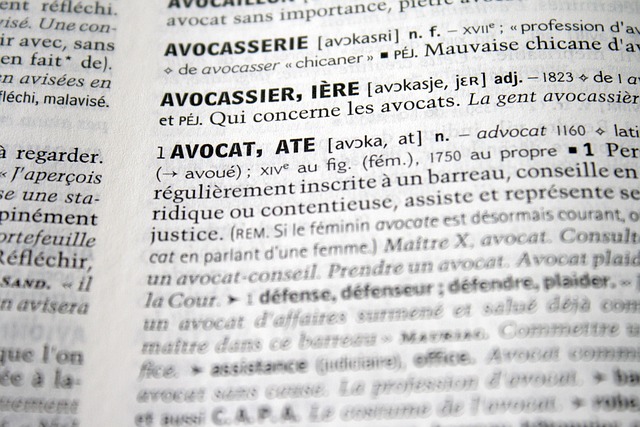Whistleblower Protection Laws (WPLs) are essential for promoting ethical practices within healthcare organizations, offering legal protection to employees who report illegal or unethical activities. Navigating the complex regulatory landscape requires Expert Advice on Healthcare Regulatory Compliance, which guides clients through investigations and enforcement processes, helping them implement strong compliance measures and mitigate risks. In healthcare whistleblowing cases, demonstrating genuine concern with meticulous documentation of evidence is key to securing legal protection while exposing misconduct without fear of reprisal. Success involves understanding industry standards, policy breaches, and patient privacy laws, employing strategic defenses against powerful defendants. Real-world instances highlight the effectiveness of whistleblower lawsuits in ensuring accountability for misconduct, such as improved Medicare billing practices and significant penalties for large-scale fraud.
“Uncovering wrongdoings within healthcare organizations has never been more crucial, thanks to Whistleblower Protection Laws. This comprehensive guide delves into the intricate world of these legal protections and provides expert advice on navigating healthcare regulatory compliance. From understanding the role of professionals in uncovering fraud to mastering strategies for successful lawsuits, we explore real-world examples and common challenges faced by whistleblowers. Get ready to discover how to win these cases and make a significant impact.”
- Understanding Whistleblower Protection Laws: A Comprehensive Overview
- The Role of Experts in Navigating Healthcare Regulatory Compliance
- Strategies for Success: How to Win Whistleblower Protection Lawsuits
- Common Challenges and Defenses in Healthcare Whistleblowing Cases
- Real-World Examples: Case Studies of Successful Whistleblower Actions
Understanding Whistleblower Protection Laws: A Comprehensive Overview
Whistleblower Protection Laws (WPLs) are a crucial set of regulations designed to safeguard individuals who expose illegal or unethical activities within organizations, particularly in the healthcare sector. These laws provide a legal framework that encourages employees to report misconduct while ensuring their protection from retaliation. Understanding WPLs is essential for both whistleblowers and employers seeking expert advice on healthcare regulatory compliance.
In the context of healthcare, WPLs are vital as they enable individuals with knowledge of fraudulent practices, patient safety concerns, or violations of regulations to come forward without fear of reprisal. This includes reporting white-collar and economic crimes, where complex schemes often require significant insider information. While these cases can lead to substantial legal consequences for defendants, whistleblowers also face risks, including potential backlash from employers and the possibility of costly jury trials in white-collar defense cases. Therefore, a comprehensive understanding of WPLs is necessary to navigate this delicate balance effectively.
The Role of Experts in Navigating Healthcare Regulatory Compliance
The healthcare industry is highly regulated, and navigating the complex landscape of compliance can be a daunting task for organizations and individuals alike. This is where expert advice on healthcare regulatory compliance plays a pivotal role. Specialized professionals with in-depth knowledge and experience are instrumental in guiding clients through all stages of the investigative and enforcement process, ensuring adherence to stringent rules and guidelines.
These experts offer valuable insights into the ever-evolving regulatory environment, helping corporate and individual clients stay ahead of potential pitfalls. Their strategic guidance enables entities to implement robust compliance programs, mitigate risks, and achieve extraordinary results. By leveraging their expertise, organizations can avoid costly legal battles, protect their reputation, and foster a culture of ethical practices within their healthcare operations.
Strategies for Success: How to Win Whistleblower Protection Lawsuits
Winning whistleblower protection lawsuits requires a strategic approach, especially in the complex landscape of healthcare regulatory compliance. Engaging expert advice on healthcare regulatory compliance is pivotal; it provides insights into navigating the intricate legal and ethical terrain surrounding whistleblowing. Understanding the respective business’s policies and procedures related to disclosure is key, as it helps in presenting a strong case for protection against potential retaliation or avoiding indictment.
The success of these lawsuits often hinges on demonstrating that the whistleblower acted with genuine concerns about illegal activities, not personal gain. This involves meticulously documenting evidence, including internal communications and any attempts to report concerns internally before external disclosure. By employing these strategies, whistleblowers can enhance their chances of securing legal protection, ensuring they can expose misconduct without fear of reprisal in their respective business or the face of white-collar and economic crimes investigations.
Common Challenges and Defenses in Healthcare Whistleblowing Cases
Healthcare whistleblowing cases present unique challenges due to the intricate nature of medical regulations and the sensitive information involved. When employees or individuals expose misconduct or violations within healthcare facilities, they often face significant obstacles in pursuing legal action. One common hurdle is the interpretation of laws and policies related to patient privacy and confidentiality, which can be complex and vary across jurisdictions. This requires expert advice on healthcare regulatory compliance to navigate these legal intricacies successfully.
The defense strategies employed in such cases are equally demanding. Defendants, often including powerful corporations and influential individuals, may leverage their resources to mount robust defenses. Across the country, legal battles have shown that establishing a credible whistleblower claim is not straightforward. Winning challenging defense verdicts demands meticulous documentation, understanding of industry standards, and demonstrating a clear breach of duty or policy without compromising patient safety.
Real-World Examples: Case Studies of Successful Whistleblower Actions
Whistleblower protection lawsuits have been instrumental in holding organizations accountable for misconduct, especially in highly regulated sectors like healthcare. Real-world examples illustrate the power of these actions. For instance, a study by the Government Accountability Office (GAO) revealed that a whistleblower’s revelations led to significant improvements in Medicare billing practices, preventing millions in fraudulent claims. This case showcases how expert advice on healthcare regulatory compliance can be enhanced through internal whistleblowing systems.
Another compelling example involves a former employee of a prominent bank who exposed the institution’s role in a multi-billion dollar money laundering scheme. The resulting lawsuit not only secured substantial financial penalties but also prompted the bank to overhaul its anti-money laundering policies, demonstrating the impact of white collar defense strategies. This success highlights the importance of fostering ethical cultures within the philanthropic and political communities, where whistleblowers play a crucial role in exposing white collar and economic crimes.
Whistleblower protection lawsuits play a vital role in upholding ethical standards within the healthcare industry. By understanding the comprehensive overview of whistleblower protection laws and leveraging expert advice on healthcare regulatory compliance, individuals can navigate complex legal landscapes effectively. The strategies for success highlighted in this article empower those with valuable insights to win such cases. Through analyzing real-world examples and case studies, it’s evident that proactive measures and robust defenses are key to achieving positive outcomes. Armed with the right knowledge and expert guidance, healthcare professionals can become agents of change, ensuring accountability and fostering a culture of integrity.






